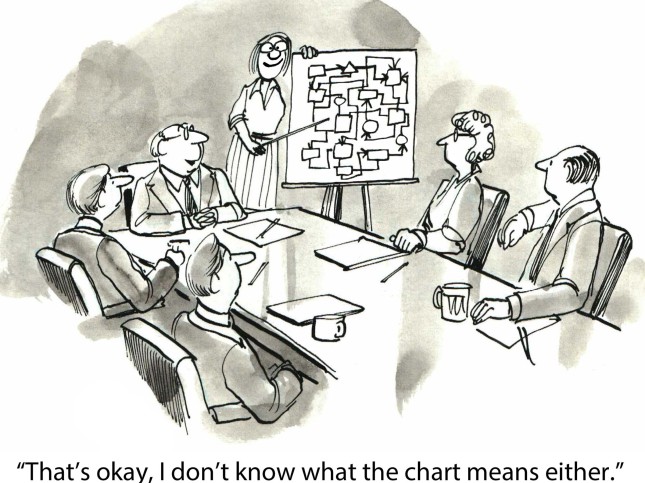Perfect Plans Are Pointless
I’ve always been a huge proponent of the benefits of planning at all levels of sales, including territory plans, key account plans, opportunity plans, and especially sales call plans.
Most salespeople don’t do enough planning, preferring instead to rely on their gift of gab and their natural ability to go with the flow during the sales conversation. But when they actually do it, they find that planning helps salespeople think from the customer’s point of view; it ensures that major holes in their knowledge or positioning are identified and addressed, and it also can provide a generous jolt of confidence going into the meeting.
That’s why, when I teach sales planning, I often remind students of the “5 Ps of Planning: Proper Planning Prevents Poor Performance.”[1]
Better planning is a powerful prescription for poor sales results, but like any powerful medicine it has to be taken in the proper dose. There are some salespeople who take it a bit too far, and work hard to produce perfect plans. They try to craft just the right questions, word them very carefully, anticipate every possible objection and have just the right answer for them. For them, I need to add an advanced reminder in the form of 3 More Ps of Planning: “Perfect Plans Are Pointless.”
There are at least four reasons I can think of.
The customer has a vote. The first reason is so obvious that it has become a military cliché: no plan survives contact with the enemy. Substitute the word “customer” for enemy and it applies just as well to sales. You can craft your opening moves very carefully, and then be completely flummoxed when the customer tells you they have a totally different idea of what they want to accomplish during the call.
You will never have perfect knowledge. Despite the common misconception that we have unlimited knowledge at our fingertips, you can never know enough. For example, I strongly recommend trying to think from the customer’s point of view, but as recent research suggests we’re just not as good at it as we think we are. If even long-married couples have trouble anticipating how their spouse will answer some basic questions, you can’t know what your customer will think or say.
And even when you do have proper information, things are always changing (particularly since there are competitors involved), so a perfect plan is like painting the Golden Gate Bridge; by the time you get to the end you need to start over at the beginning. As Scott Sonenshein says in his excellent book Stretch: Unlock the Power of Less – and Achieve More than You Ever Imagined: “We end up planning for a world that no longer exists, while tricking ourselves into believing that it does exist because that’s what we planned for.”
Planning can lock in your thinking. Planning is about making choices, so the more you refine your plan, the more you narrow your focus and restrict your imagination. This has two consequences when things go off track during the actual contact with the customer. First, by limiting your thinking about other possibilities, you leave yourself unprepared for the unexpected. Second, you may have become so invested in your plan that carrying out the plan becomes more important than making the sale. I’ve seen salespeople fall so in love with their plan, that they ask their questions and then don’t really listen to the customer’s answer. They listen for the answer they’re expecting, and when they don’t hear it, they plow obliviously on to the next question. Or they keep going even when the customer is practically screaming buying signals at them!
Planning can give the illusion that something is happening. You take time to plan, to research the customer, and to think. When you produce that great plan, it can certainly give you a sense of achievement. And these are all necessary and important activities. But remember, nothing happens until you actually connect with the customer. The entire purpose of sales is to communicate useful information to help customers make a decision. Planning by itself is sterile, because it does not move the sale through the buying cycle one iota—and in fact the sale may be moving through the cycle on its own, or under the influence of someone else’s plan.
But please don’t take this post as advice to drop planning altogether. Remember the first word in the 5 Ps: Proper planning. Proper planning is not perfect planning. As the saying goes:
“Better to be roughly right than precisely wrong.”
[1] Yes, I know there is a 6 P version, but this is a family blog




